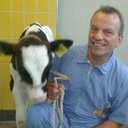Medicinal plants--prophylactic and therapeutic options for gastrointestinal and respiratory diseases in calves and piglets? A systematic review.
Mots clés
Abstrait
BACKGROUND
Gastrointestinal and respiratory diseases in calves and piglets lead to significant economic losses in livestock husbandry. A high morbidity has been reported for diarrhea (calves ≤ 35%; piglets ≤ 50%) and for respiratory diseases (calves ≤ 80%; piglets ≤ 40%). Despite a highly diverse etiology and pathophysiology of these diseases, treatment with antimicrobials is often the first-line therapy. Multi-antimicrobial resistance in pathogens results in international accordance to strengthen the research in novel treatment options. Medicinal plants bear a potential as alternative or additional treatment. Based on the versatile effects of their plant specific multi-component-compositions, medicinal plants can potentially act as 'multi-target drugs'. Regarding the plurality of medicinal plants, the aim of this systematic review was to identify potential medicinal plant species for prevention and treatment of gastrointestinal and respiratory diseases and for modulation of the immune system and inflammation in calves and piglets.
RESULTS
Based on nine initial sources including standard textbooks and European ethnoveterinary studies, a total of 223 medicinal plant species related to the treatment of gastrointestinal and respiratory diseases was identified. A defined search strategy was established using the PRISMA statement to evaluate 30 medicinal plant species starting from 20'000 peer-reviewed articles published in the last 20 years (1994-2014). This strategy led to 418 references (257 in vitro, 84 in vivo and 77 clinical trials, thereof 48 clinical trials in veterinary medicine) to evaluate effects of medicinal plants and their efficacy in detail. The findings indicate that the most promising candidates for gastrointestinal diseases are Allium sativum L., Mentha x piperita L. and Salvia officinalis L.; for diseases of the respiratory tract Echinacea purpurea (L.) MOENCH, Thymus vulgaris L. and Althea officinalis L. were found most promising, and Echinacea purpurea (L.) MOENCH, Camellia sinensis (L.) KUNTZE, Glycyrrhiza glabra L. and Origanum vulgare L. were identified as best candidates for modulation of the immune system and inflammation.
CONCLUSIONS
Several medicinal plants bear a potential for novel treatment strategies for young livestock. There is a need for further research focused on gastrointestinal and respiratory diseases in calves and piglets, and the findings of this review provide a basis on plant selection for future studies.



